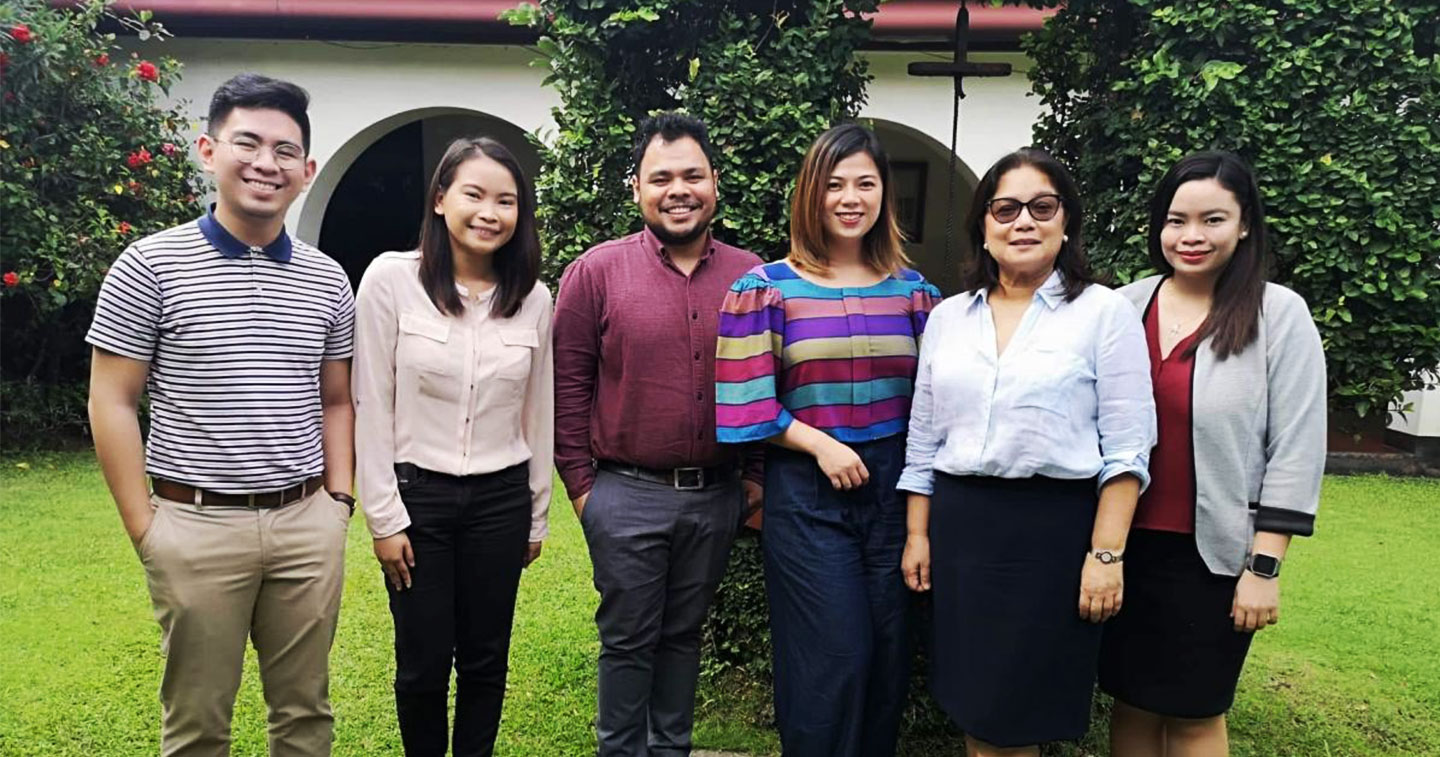The support for Philippine Cinema has intensified worldwide over the past couple of years as various Philippine Embassies and Consulates have held film festivals to highlight the country’s cinematic achievements. The latest film champion supporting the 100 Years of PH Cinema is the Philippine Embassy in Portugal with Ambassador Celia Anna “Cookie” Feria at the helm.
From November 8 to November 30, Cinema das Filipinas – Nos Cem Anos do Cinema Filipino (Philippine Cinema – In the Hundred Years of Filipino Cinema) will be held at Cinemateca Portuguesa – Museu do Cinema in Lisbon. This PH Cinema Retrospective is made possible through the collaboration among the Philippine Embassy in Portugal, Film Development Council of the Philippines (FDCP), and Cinemateca Portuguesa – Museu do Cinema.
Cinema das Filipinas – Nos Cem Anos do Cinema Filipino is a project under the Philippine Embassies Assistance Program (PEAP) of FDCP in partnership with the Department of Foreign Affairs (DFA) and DFA Cultural Diplomacy Unit. PEAP aims to encourage all Philippine Embassies and Consulates to organize film-related cultural activities so that overseas Pinoys and nationalities from their respective countries of assignment can discover and appreciate Philippine Cinema.
Through thematic curation, FDCP assists the Embassies and Consulates in coming up with a lineup of films and securing screening rights. The lineup is curated by FDCP according to the preference of the Embassies and Consulates, with themes such as contemporary, classic, tourism, culinary, and genre. FDCP provides a comprehensive list, updated annually, that features films that FDCP has full, partial, or non-exclusive rights to, as well as films that the national film agency can acquire at a discounted screening fee rate. FDCP also facilitates coordination with producers should an Embassy or Consulate wish to screen a film that is not part of the list.
Moreover, FDCP has shouldered subtitling fees and has taken care of Philippine Cinema lectures and conferences by sending film ambassadors to serve as guest speakers. For the past two years since PEAP was launched, FDCP has supported more than 30 Philippine Embassies and Consulates in mounting their events and film screenings. Three Philippine Embassy-led film festivals have been organized this year: Rome, Italy in September, and Portugal and Singapore in November.
“I’m very pleased that more and more Philippine embassies are now seeing cinema as a way to promote our stories and our people. We cannot just have one narrative out there about the Philippines. Sometimes, hindi maiiwasan pagdating sa A-list film festivals, dahil sila ang nag-cu-curate, the gritty side of the Philippines lang ang na-sho-showcase. But the Philippines is more than that and there should be more focused efforts in showing the diversity of our cinema and the different facets of the Philippines. Through a well-curated government-led Filipino film festival, we take charge of the narratives we want to share with the world. It’s all about collaboration and seeing the bigger picture,” commented FDCP Chairperson and CEO Liza Diño.

All Philippine Embassies around the globe can avail of the PEAP. A request made through an accomplished application form must be sent to the FDCP International Relations Division at least two months prior to the event. This will give FDCP ample time to guarantee the timely delivery of the requested films. The import and export of the films can be done by the Embassies by using their diplomatic pouches or by coordinating with the DFA Cultural Diplomacy Unit.
Kidlat Tahimik to headline conference and lecture in Portugal
The lineup of Cinema das Filipinas – Nos Cem Anos do Cinema Filipino comprises 15 films, including timeless classics and modern favorites such as “Genghis Khan,” “Himala,” “Balikbayan #1: Memories of Overdevelopment Redux VI,” “Serbis” and “Independencia.” All films will be screened in high definition digital formats save for “Serbis” and “Independencia,” which will be shown in 35mm.
National Artist for Film Kidlat Tahimik will head to Portugal where two of his works will be shown: “Mababangong Bangungot” and “Balikbayan #1: Memories of Overdevelopment Redux VI,” which he started in 1979 and completed in 2015. On November 12, Kidlat Tahimik will speak at the Philippine Cinema Conference together with author, University of the Philippines (UP) Professor, and UP Film Institute Director Patrick Campos. FDCP Chair Diño will also grace the Philippine Cinema Conference. Additionally, Kidlat Tahimik will give a lecture on November 27 when “Balikbayan #1: Memories of Overdevelopment Redux VI” is scheduled for a screening.
Genghis Khan (1950) will be shown on November 11 and 14.
The latest PEAP project in Portugal promises to showcase a wide range of Philippine Cinema works. “The films we present in this cycle, made between 1950 and 2015, have been divided into three major chapters, which illustrate these three great periods of vast and complex Filipino cinematography,” notes the Cinema das Filipinas – Cinemateca Portuguesa program.
The First Golden Age features two masterpieces: the 1950 production “Genghis Khan” by Lou Salvador (signed by Manuel Conde) and the 1961 film “Noli Me Tangere” by Gerardo de Leon. The Second Golden Age chapter has seven movies: “Maynila sa mga Kuko ng Liwanag” (1975) by Lino Brocka, “Ganito Kami Noon… Paano Kayo Ngayon?” (1976) by Eddie Romero, “Insiang” (1976) by Lino Brocka, “Mababangong Bangungot” (1977) by Kidlat Tahimik, “Himala” (1982) by Ishmael Bernal, “Oro, Plata, Mata” (1982) by Peque Gallaga, and “Karnal” (1983) by Marilou Diaz-Abaya.
Completing the lineup are six productions which fall under The Rise of Independent Movies. Raya Martin’s “Independencia” (2009) kicks off the Philippine Cinema Cycle on November 8. The other indie films are Lav Diaz’s “Ebolusyon ng Isang Pamilyang Pilipino” (2004), Brillante Mendoza’s “Serbis” (2008), Pepe Diokno’s “Above the Clouds” (2014), Milo Sogueco’s “Mariquina” (2014), and Kidlat Tahimik’s “Balikbayan #1: Memories of Overdevelopment Redux VI” (1979/2017).
“Mariquina” (2014), which will be shown on November 26 and 30, is the closing film of the PH Cinema Retrospective in Lisbon
“We now have the opportunity to provide Portuguese viewers with a trip to the Philippine cinema, which is only known in Europe through a few auteurs, such as Lino Brocka, ‘discovered’ in the 1980s, and nowadays, especially Brillante Mendoza, Lav Diaz, or Raya Martin. However, Filipino cinematography started early (the first feature films date back to the 1910s) and Filipinos have always been part of the world’s most avid cinema viewers,” Cinemateca Portuguesa – Museu do Cinema says in support of Cinema das Filipinas.
The 15 Filipino films will be screened either at Sala Félix Ribeiro or Sala Luís de Pina in Cinemateca Portuguesa located at Rua Barata Salgueiro 39 – 1269-059 Lisbon. The Philippine Cinema Conference on November 12 will take place at Sala Luís de Pina at 6:30 p.m., while Kidlat Tahimik’s lecture on November 27 will be held at Sala Félix Ribeiro beginning 9:30 p.m.










